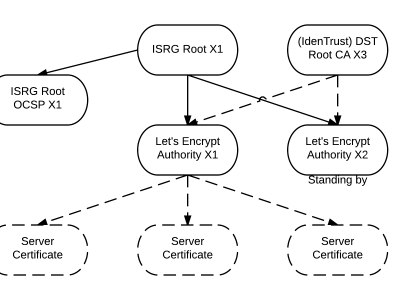如何在 Linux 中找出內存消耗最大的進程

很多次,你可能遇見過系統消耗了過多的內存。如果是這種情況,那麼最好的辦法是識別出 Linux 機器上消耗過多內存的進程。我相信,你可能已經運行了下文中的命令以進行檢查。如果沒有,那你嘗試過哪些其他的命令?我希望你可以在評論中更新這篇文章,它可能會幫助其他用戶。
使用 top 命令 和 ps 命令 可以輕鬆的識別這種情況。我過去經常同時使用這兩個命令,兩個命令得到的結果是相同的。所以我建議你從中選擇一個喜歡的使用就可以。
1) 如何使用 ps 命令在 Linux 中查找內存消耗最大的進程
ps 命令用於報告當前進程的快照。ps 命令的意思是「進程狀態」。這是一個標準的 Linux 應用程序,用於查找有關在 Linux 系統上運行進程的信息。
它用於列出當前正在運行的進程及其進程 ID(PID)、進程所有者名稱、進程優先順序(PR)以及正在運行的命令的絕對路徑等。
下面的 ps 命令格式為你提供有關內存消耗最大進程的更多信息。
# ps aux --sort -rss | head
USER PID %CPU %MEM VSZ RSS TTY STAT START TIME COMMAND
mysql 1064 3.2 5.4 886076 209988 ? Ssl Oct25 62:40 /usr/sbin/mysqld
varnish 23396 0.0 2.9 286492 115616 ? SLl Oct25 0:42 /usr/sbin/varnishd -P /var/run/varnish.pid -f /etc/varnish/default.vcl -a :82 -T 127.0.0.1:6082 -S /etc/varnish/secret -s malloc,256M
named 1105 0.0 2.7 311712 108204 ? Ssl Oct25 0:16 /usr/sbin/named -u named -c /etc/named.conf
nobody 23377 0.2 2.3 153096 89432 ? S Oct25 4:35 nginx: worker process
nobody 23376 0.1 2.1 147096 83316 ? S Oct25 2:18 nginx: worker process
root 23375 0.0 1.7 131028 66764 ? Ss Oct25 0:01 nginx: master process /usr/sbin/nginx -c /etc/nginx/nginx.conf
nobody 23378 0.0 1.6 130988 64592 ? S Oct25 0:00 nginx: cache manager process
root 1135 0.0 0.9 86708 37572 ? S 05:37 0:20 cwpsrv: worker process
root 1133 0.0 0.9 86708 37544 ? S 05:37 0:05 cwpsrv: worker process使用以下 ps 命令格式可在輸出中僅展示有關內存消耗過程的特定信息。
# ps -eo pid,ppid,%mem,%cpu,cmd --sort=-%mem | head
PID PPID %MEM %CPU CMD
1064 1 5.4 3.2 /usr/sbin/mysqld
23396 23386 2.9 0.0 /usr/sbin/varnishd -P /var/run/varnish.pid -f /etc/varnish/default.vcl -a :82 -T 127.0.0.1:6082 -S /etc/varnish/secret -s malloc,256M
1105 1 2.7 0.0 /usr/sbin/named -u named -c /etc/named.conf
23377 23375 2.3 0.2 nginx: worker process
23376 23375 2.1 0.1 nginx: worker process
3625 977 1.9 0.0 /usr/local/bin/php-cgi /home/daygeekc/public_html/index.php
23375 1 1.7 0.0 nginx: master process /usr/sbin/nginx -c /etc/nginx/nginx.conf
23378 23375 1.6 0.0 nginx: cache manager process
1135 3034 0.9 0.0 cwpsrv: worker process如果你只想查看命令名稱而不是命令的絕對路徑,請使用下面的 ps 命令格式。
# ps -eo pid,ppid,%mem,%cpu,comm --sort=-%mem | head
PID PPID %MEM %CPU COMMAND
1064 1 5.4 3.2 mysqld
23396 23386 2.9 0.0 cache-main
1105 1 2.7 0.0 named
23377 23375 2.3 0.2 nginx
23376 23375 2.1 0.1 nginx
23375 1 1.7 0.0 nginx
23378 23375 1.6 0.0 nginx
1135 3034 0.9 0.0 cwpsrv
1133 3034 0.9 0.0 cwpsrv2) 如何使用 top 命令在 Linux 中查找內存消耗最大的進程
Linux 的 top 命令是用來監視 Linux 系統性能的最好和最知名的命令。它在交互界面上顯示運行的系統進程的實時視圖。但是,如果要查找內存消耗最大的進程,請 在批處理模式下使用 top 命令。
你應該正確地 了解 top 命令輸出 以解決系統中的性能問題。
# top -c -b -o +%MEM | head -n 20 | tail -15
PID USER PR NI VIRT RES SHR S %CPU %MEM TIME+ COMMAND
1064 mysql 20 0 886076 209740 8388 S 0.0 5.4 62:41.20 /usr/sbin/mysqld
23396 varnish 20 0 286492 115616 83572 S 0.0 3.0 0:42.24 /usr/sbin/varnishd -P /var/run/varnish.pid -f /etc/varnish/default.vcl -a :82 -T 127.0.0.1:6082 -S /etc/varnish/secret -s malloc,256M
1105 named 20 0 311712 108204 2424 S 0.0 2.8 0:16.41 /usr/sbin/named -u named -c /etc/named.conf
23377 nobody 20 0 153240 89432 2432 S 0.0 2.3 4:35.74 nginx: worker process
23376 nobody 20 0 147096 83316 2416 S 0.0 2.1 2:18.09 nginx: worker process
23375 root 20 0 131028 66764 1616 S 0.0 1.7 0:01.07 nginx: master process /usr/sbin/nginx -c /etc/nginx/nginx.conf
23378 nobody 20 0 130988 64592 592 S 0.0 1.7 0:00.51 nginx: cache manager process
1135 root 20 0 86708 37572 2252 S 0.0 1.0 0:20.18 cwpsrv: worker process
1133 root 20 0 86708 37544 2212 S 0.0 1.0 0:05.94 cwpsrv: worker process
3034 root 20 0 86704 36740 1452 S 0.0 0.9 0:00.09 cwpsrv: master process /usr/local/cwpsrv/bin/cwpsrv
1067 nobody 20 0 1356200 31588 2352 S 0.0 0.8 0:56.06 /usr/local/apache/bin/httpd -k start
977 nobody 20 0 1356088 31268 2372 S 0.0 0.8 0:30.44 /usr/local/apache/bin/httpd -k start
968 nobody 20 0 1356216 30544 2348 S 0.0 0.8 0:19.95 /usr/local/apache/bin/httpd -k start如果你只想查看命令名稱而不是命令的絕對路徑,請使用下面的 top 命令格式。
# top -b -o +%MEM | head -n 20 | tail -15
PID USER PR NI VIRT RES SHR S %CPU %MEM TIME+ COMMAND
1064 mysql 20 0 886076 210340 8388 S 6.7 5.4 62:40.93 mysqld
23396 varnish 20 0 286492 115616 83572 S 0.0 3.0 0:42.24 cache-main
1105 named 20 0 311712 108204 2424 S 0.0 2.8 0:16.41 named
23377 nobody 20 0 153240 89432 2432 S 13.3 2.3 4:35.74 nginx
23376 nobody 20 0 147096 83316 2416 S 0.0 2.1 2:18.09 nginx
23375 root 20 0 131028 66764 1616 S 0.0 1.7 0:01.07 nginx
23378 nobody 20 0 130988 64592 592 S 0.0 1.7 0:00.51 nginx
1135 root 20 0 86708 37572 2252 S 0.0 1.0 0:20.18 cwpsrv
1133 root 20 0 86708 37544 2212 S 0.0 1.0 0:05.94 cwpsrv
3034 root 20 0 86704 36740 1452 S 0.0 0.9 0:00.09 cwpsrv
1067 nobody 20 0 1356200 31588 2352 S 0.0 0.8 0:56.04 httpd
977 nobody 20 0 1356088 31268 2372 S 0.0 0.8 0:30.44 httpd
968 nobody 20 0 1356216 30544 2348 S 0.0 0.8 0:19.95 httpd3) 獎勵技巧:如何使用 ps_mem 命令在 Linux 中查找內存消耗最大的進程
ps_mem 程序 用於顯示每個程序(而不是每個進程)使用的核心內存。該程序允許你檢查每個程序使用了多少內存。它根據程序計算私有和共享內存的數量,並以最合適的方式返回已使用的總內存。
它使用以下邏輯來計算內存使用量。總內存使用量 = sum(用於程序進程的專用內存使用量) + sum(用於程序進程的共享內存使用量)。
# ps_mem
Private + Shared = RAM used Program
128.0 KiB + 27.5 KiB = 155.5 KiB agetty
228.0 KiB + 47.0 KiB = 275.0 KiB atd
284.0 KiB + 53.0 KiB = 337.0 KiB irqbalance
380.0 KiB + 81.5 KiB = 461.5 KiB dovecot
364.0 KiB + 121.5 KiB = 485.5 KiB log
520.0 KiB + 65.5 KiB = 585.5 KiB auditd
556.0 KiB + 60.5 KiB = 616.5 KiB systemd-udevd
732.0 KiB + 48.0 KiB = 780.0 KiB crond
296.0 KiB + 524.0 KiB = 820.0 KiB avahi-daemon (2)
772.0 KiB + 51.5 KiB = 823.5 KiB systemd-logind
940.0 KiB + 162.5 KiB = 1.1 MiB dbus-daemon
1.1 MiB + 99.0 KiB = 1.2 MiB pure-ftpd
1.2 MiB + 100.5 KiB = 1.3 MiB master
1.3 MiB + 198.5 KiB = 1.5 MiB pickup
1.3 MiB + 198.5 KiB = 1.5 MiB bounce
1.3 MiB + 198.5 KiB = 1.5 MiB pipe
1.3 MiB + 207.5 KiB = 1.5 MiB qmgr
1.4 MiB + 198.5 KiB = 1.6 MiB cleanup
1.3 MiB + 299.5 KiB = 1.6 MiB trivial-rewrite
1.5 MiB + 145.0 KiB = 1.6 MiB config
1.4 MiB + 291.5 KiB = 1.6 MiB tlsmgr
1.4 MiB + 308.5 KiB = 1.7 MiB local
1.4 MiB + 323.0 KiB = 1.8 MiB anvil (2)
1.3 MiB + 559.0 KiB = 1.9 MiB systemd-journald
1.8 MiB + 240.5 KiB = 2.1 MiB proxymap
1.9 MiB + 322.5 KiB = 2.2 MiB auth
2.4 MiB + 88.5 KiB = 2.5 MiB systemd
2.8 MiB + 458.5 KiB = 3.2 MiB smtpd
2.9 MiB + 892.0 KiB = 3.8 MiB bash (2)
3.3 MiB + 555.5 KiB = 3.8 MiB NetworkManager
4.1 MiB + 233.5 KiB = 4.3 MiB varnishd
4.0 MiB + 662.0 KiB = 4.7 MiB dhclient (2)
4.3 MiB + 623.5 KiB = 4.9 MiB rsyslogd
3.6 MiB + 1.8 MiB = 5.5 MiB sshd (3)
5.6 MiB + 431.0 KiB = 6.0 MiB polkitd
13.0 MiB + 546.5 KiB = 13.6 MiB tuned
22.5 MiB + 76.0 KiB = 22.6 MiB lfd - sleeping
30.0 MiB + 6.2 MiB = 36.2 MiB php-fpm (6)
5.7 MiB + 33.5 MiB = 39.2 MiB cwpsrv (3)
20.1 MiB + 25.3 MiB = 45.4 MiB httpd (5)
104.7 MiB + 156.0 KiB = 104.9 MiB named
112.2 MiB + 479.5 KiB = 112.7 MiB cache-main
69.4 MiB + 58.6 MiB = 128.0 MiB nginx (4)
203.4 MiB + 309.5 KiB = 203.7 MiB mysqld
------------------------------ 775.8 MiB
=================================via: https://www.2daygeek.com/linux-find-top-memory-consuming-processes/
作者:Magesh Maruthamuthu 選題:lujun9972 譯者:lnrCoder 校對:wxy
本文轉載來自 Linux 中國: https://github.com/Linux-CN/archive






















